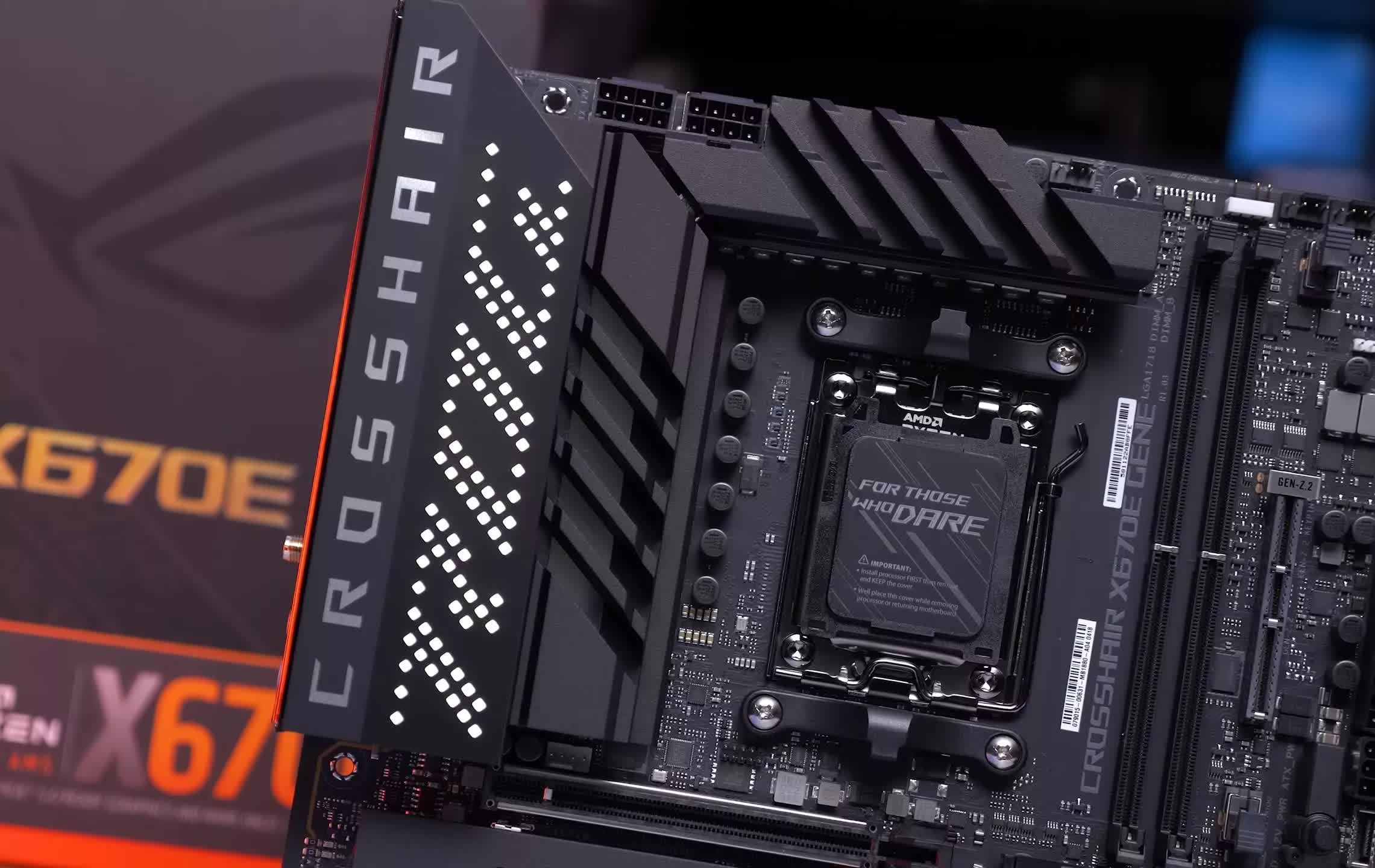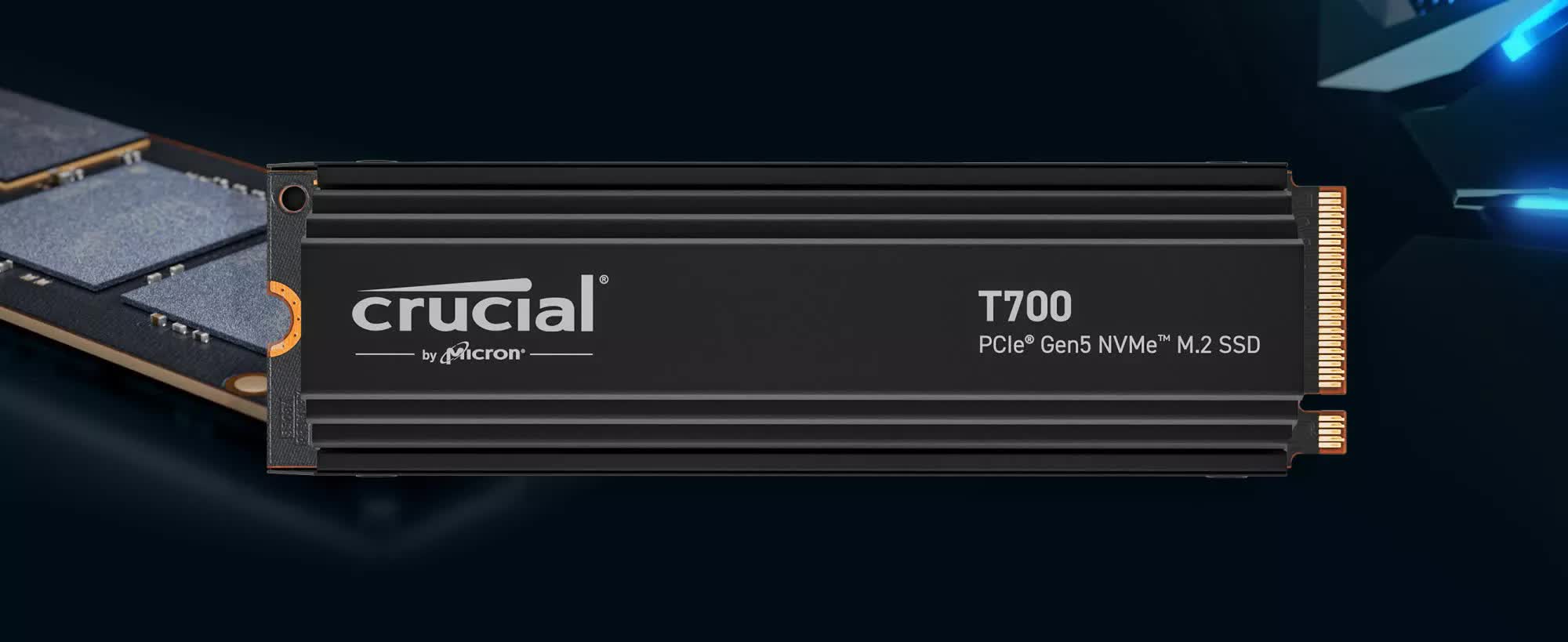Facepalm: A significant number of X670E owners have been dealing with an annoying issue where their PCIe 5.0 drives are being severely throttled down to prehistoric Gen 1 speeds. Worse yet, the problems aren't limited to a particular model or brand; they are affecting motherboards from multiple vendors like Asus and MSI.

While Gen 5 SSDs were initially running at their rated high speeds, affected users began noticing major performance drop-offs over time. In addition to slow speeds, some users have also reported their systems hanging, crashing, or failing to boot into Windows when both the primary Gen 5 SSD slot and the Gen 5 graphics card slot are populated.
Now, we all expect to encounter minor snags during a major tech transition like PCIe 5.0. However, this frustrating situation is not what early adopters signed up for. After all, Gen 5 SSD support was a key selling point for X670E. The issues have surfaced on multiple models including Crucial's T700 and T705 models.
Asus is advising affected customers to reach out to their SSD vendor for support. Meanwhile, Crucial conducted an investigation on their end and determined that the culprit lies with the X670E motherboards themselves.
In their testing across various X670E boards and in-house systems, the company was able to reproduce the same crippling slowdowns on Gen 5 SSDs. Their recommendation is to contact the motherboard maker about issuing a BIOS update to address the root cause.

"We would like to inform you that we escalated your issue to our dedicated team for further investigation, and they informed us that the problem lies with the motherboard rather than the Crucial SSD. This behavior has been observed across various motherboards from different manufacturers, and we were able to replicate it on our in-house systems as well," a statement by Crucial published on Asus' forums reads.
"The issue seems to occur when a Gen5 SSD is connected to a Gen5 slot on the motherboard, which is why you are not experiencing this problem with your Gen4 drive. If you were to connect the Crucial T705 SSD to Gen4 speeds at all times, this issue would likely be resolved," it adds.
While the exact source hasn't been pinpointed yet, some theories are circulating. One of them suggests that the primary PCIe 5.0 slot for graphics cards is sharing bandwidth with the first Gen 5 SSD slot in certain configurations. This is not ideal, as those lanes shouldn't be combined for optimal performance.
MSI has already rolled out a BIOS revision (1.0c release) that's apparently fixed things for some folks, though the issues persist for others.
On the bright side, reverting to a Gen 4 SSD or running the graphics card at Gen 4 speeds does seem to sidestep the problems for the time being. However, that's obviously not an ideal long-term solution for those who paid a premium specifically for the benefits of Gen 5.
AMD X670E motherboard bug is nerfing PCIe 5.0 SSD performance